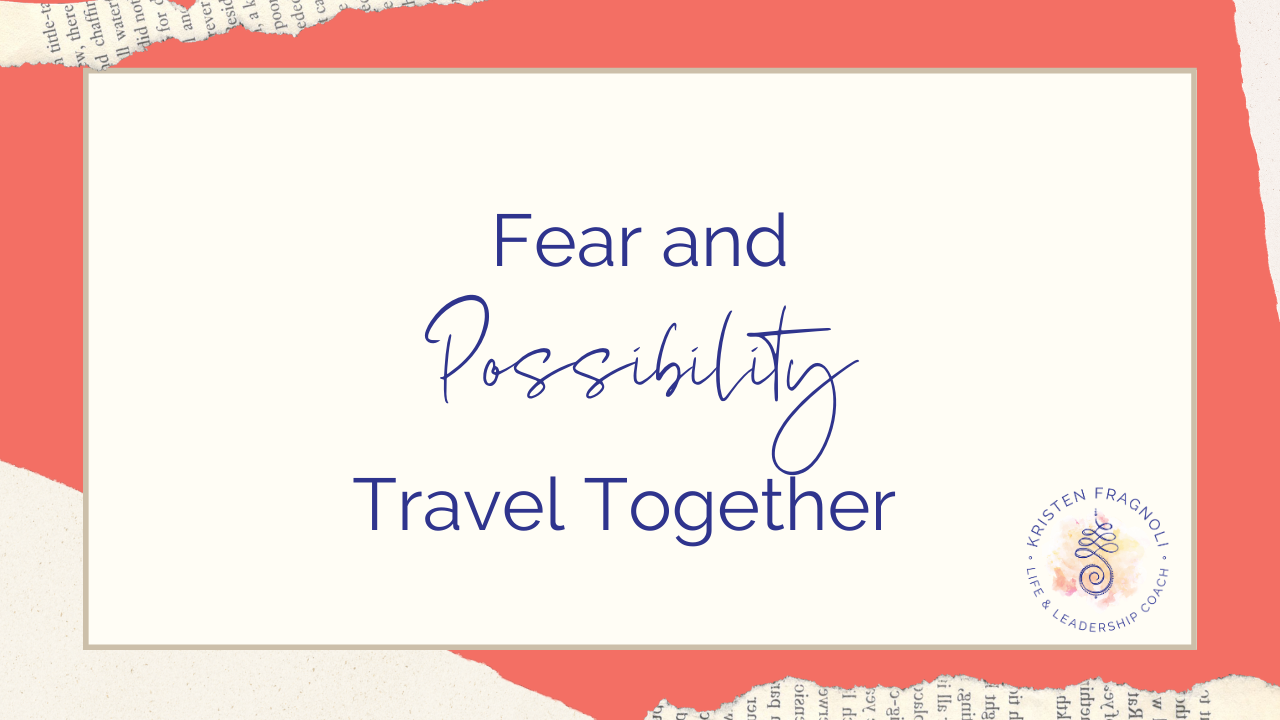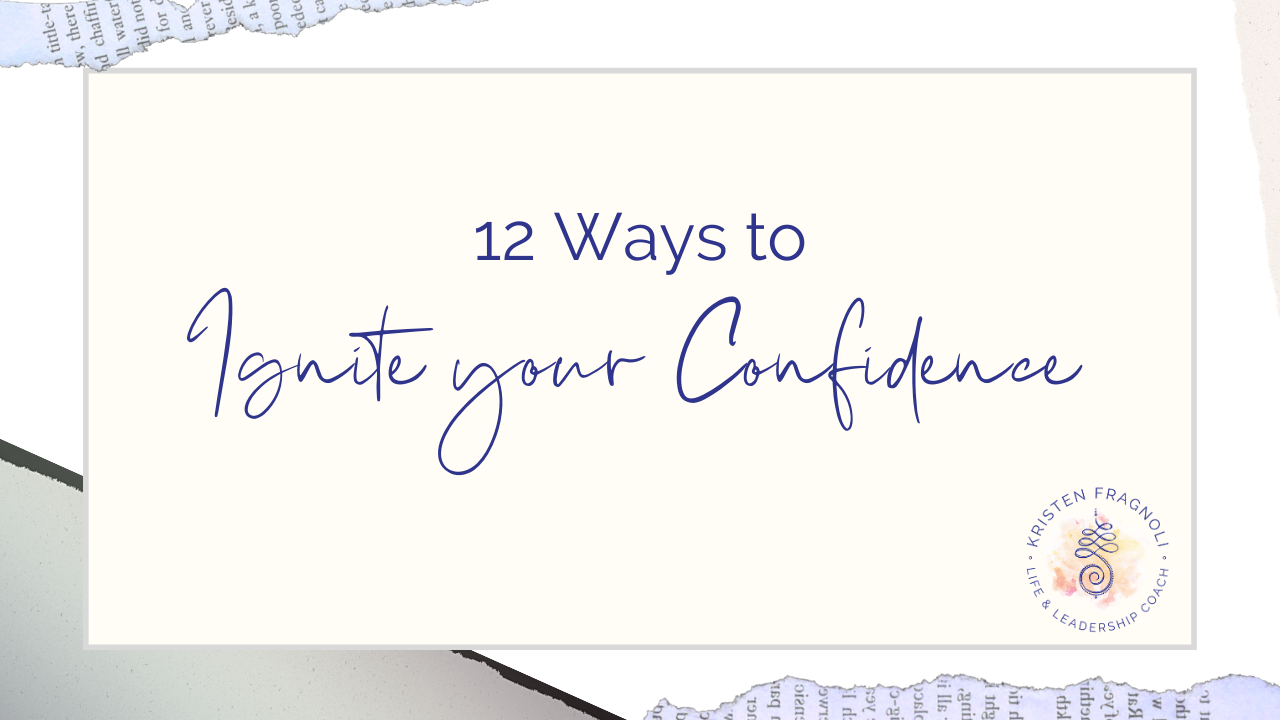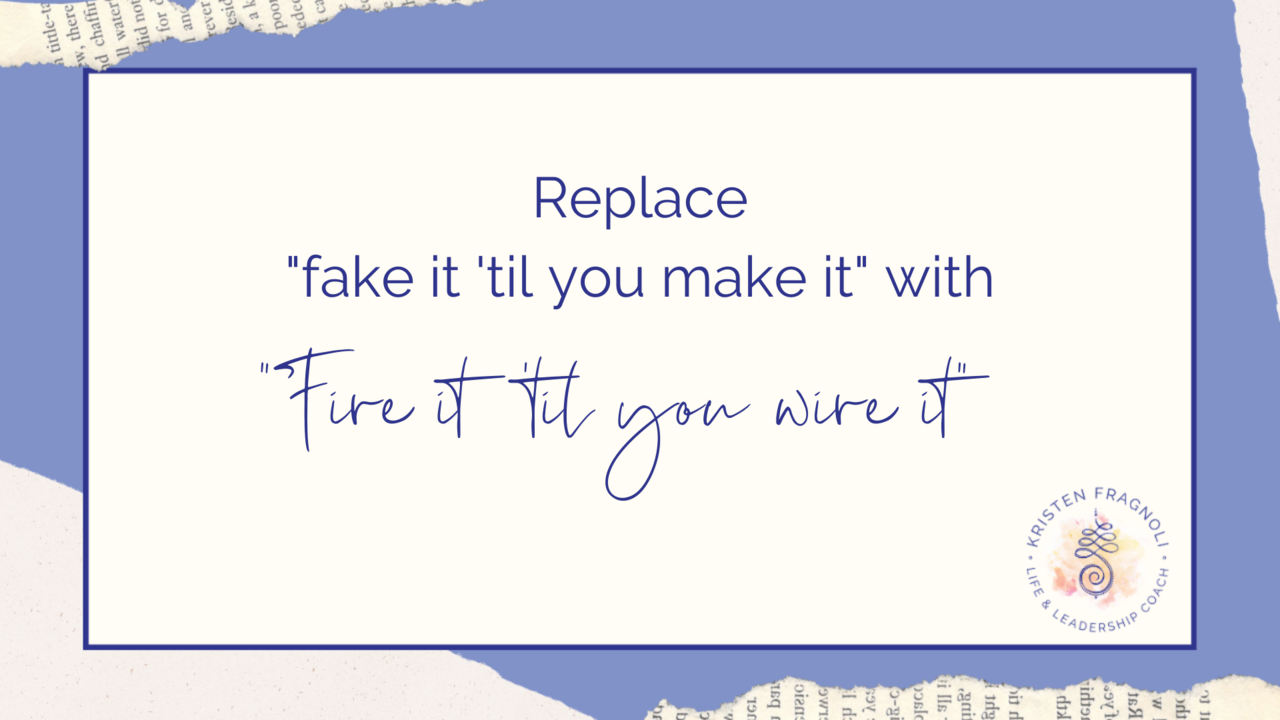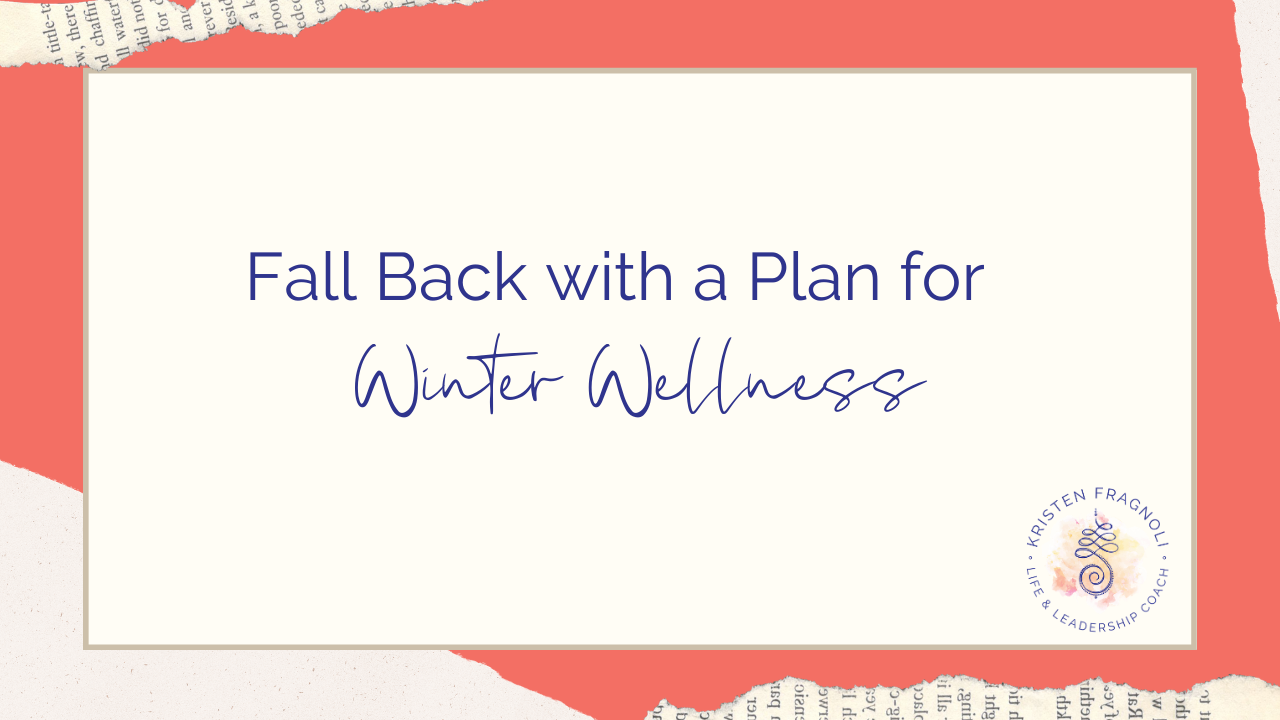Fear and Possibility Travel Together

You’ve probably heard the saying “with great power comes great responsibility.” In a similar vein, consider this: “with great possibility comes great fear.”
Ugh… does that feel like a bummer? Do you sometimes wish for a way to release and rid yourself of fear? You may be surprised to hear, it's not actually a good thing to be entirely "fearless." Conscious fear serves us; it wakes us up and tells us something significant needs to be attended to and it can embolden us for important actions. On the other hand, unconscious, toxic fear about an imagined future state that is disconnected from the present is not your friend.
We are wired to experience some fear on an automatic, split-second, neuro-biological level; the brain’s primary job is to seek safety, connection and respect. When any of these are potentially threatened, fear kicks in and we hunker down psychologically, physically and even spiritually to reduce potential harm. Yet, our brain’s long-evolved focus on safety can lead u...
12 Ways to Ignite Your Confidence

Having self-confidence is beneficial in all areas of our lives, and developing confidence is an important part of personal and professional growth. We intuitively understand that lack of confidence can hold us back from achieving all we want and being who we want to be. The experience of fear, insecurity or nervousness can be debilitating if we don’t understand ways to build confidence. I hear so many people share the desire “I need more confidence” or the lament “I’m not a confident person.”
Let’s talk about this.
A common misunderstanding I see when working with people who want to become more confident is the false belief that having confidence means NOT experiencing nervousness, insecurity or fear. While it’s true that someone with high confidence may experience less nervousness or insecurity, it’s a false belief that to be more confident you must first rid yourself of nervousness, insecurity and fear. Also inaccurate is the idea that confidence is a personality trait that you ei...
Replace “fake it 'til you make it,” with “fire it 'til you wire it.”

In a recent conversation with a friend about facing difficult work situations, she used the ubiquitous saying "fake it 'til you make it."
Listen up y'all...
it’s time for this saying to be officially and permanently retired!
When we lovingly advise each other or ourselves to “fake it 'til you make it” we are, inadvertently, reinforcing a negative internal dialog that undercuts our progress. Although intended to send the positive, uplifting message of “just take action until you gain confidence and competence,” this phrase includes a subtle, not-very-empowering message that needs examination. I understand telling ourselves to “fake it” allows us to move forward when we may not yet believe in ourselves, but language is powerful, so let’s use language that describes what’s actually happening.
To better express the dynamic that occurs when we take an action, change our nonverbal pose, smile even if we don’t feel like it, etc. let’s use the replacement phrase “fire it 'til you wire ...
Fall Back with a Plan for Winter Wellness

Daylight savings time ends when the clocks "fall back" on November 1 at 2:00am. The shift in time can be very influential on our wellbeing. Winter provides a chance to slow down, rest and restore when we hunker down for that long winter's nap.
However, eight months into a pandemic, this year is different, so it's time to make a plan for your winter wellness.
"Winter is coming" isn't just a Game of Throne catch phrase. It's a call to prepare ourselves for what's ahead; a reminder to intentionally plan behaviors and practices to build resilience during the dark days of working and schooling from home.
The good news is, when we know a storm is coming, we can prepare for it! Here in the Northeast, we’re familiar with last minute runs for bread, milk and needed supplies before a storm keeps us home for a few days. Similarly, now is the time to make a resilience plan in anticipation of our first pandemic winter.
It’s time to stock your mental, emotional and physical pantry.

Get yourse...
Affirmations for a Powerful Day

Do you use affirmations? I admit that I've been pretty skeptical in the past. But given what I have learned about neuroscience, I've changed my mind.
Neuroscience tells us that our brain responds to the thoughts we have - just like worrying can activate the stress response, what we say to ourselves via our thoughts and spoken words activates various neurotransmitters, setting off all types of body signals. Using positive affirmations activates the reward centers of your brain and, with enough repetition, can actually change your brain - a process known as neuroplasticity. Also exciting... studies have shown that the use of affirmations can increase a sense of hopefulness (we could all use a boost of hope), can lower stress, and have even been shown to improve academic performance!
Using affirmations builds a more resilient brain!
I invite you to stand up, get your feel solidly planted on the ground and read these aloud. Maybe add some great music in the background, invite your le...


